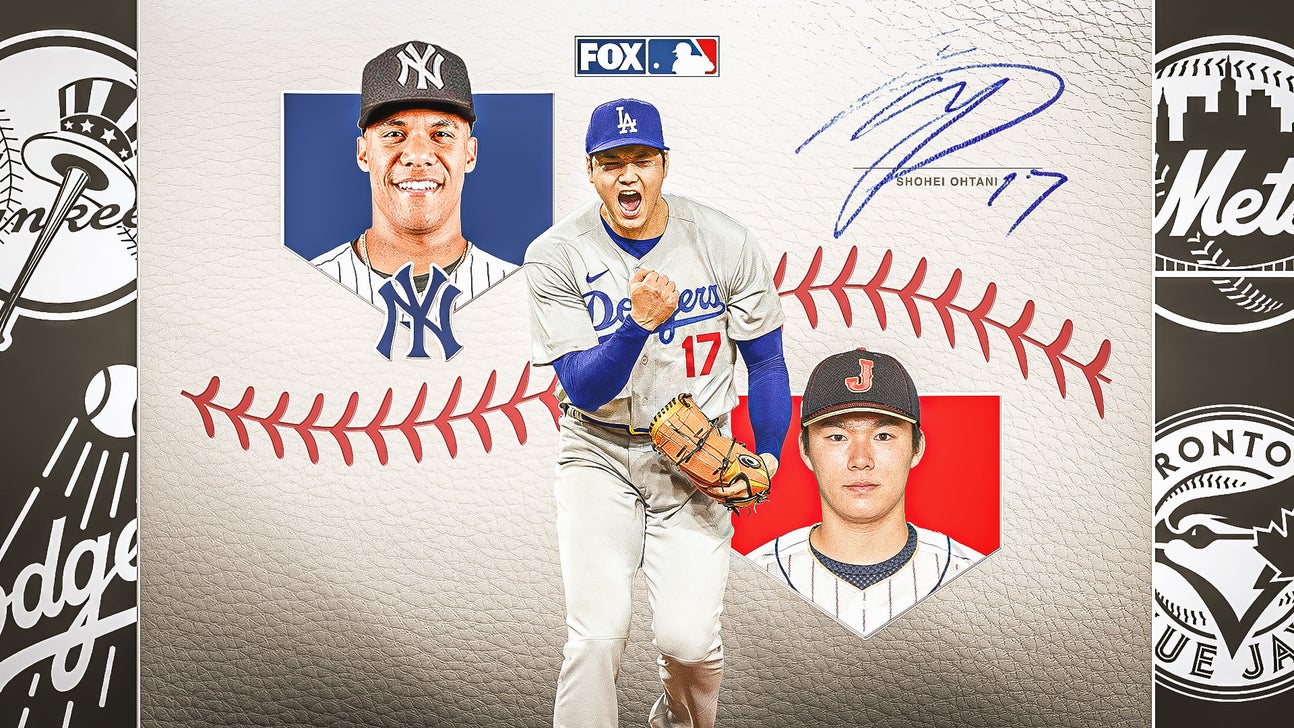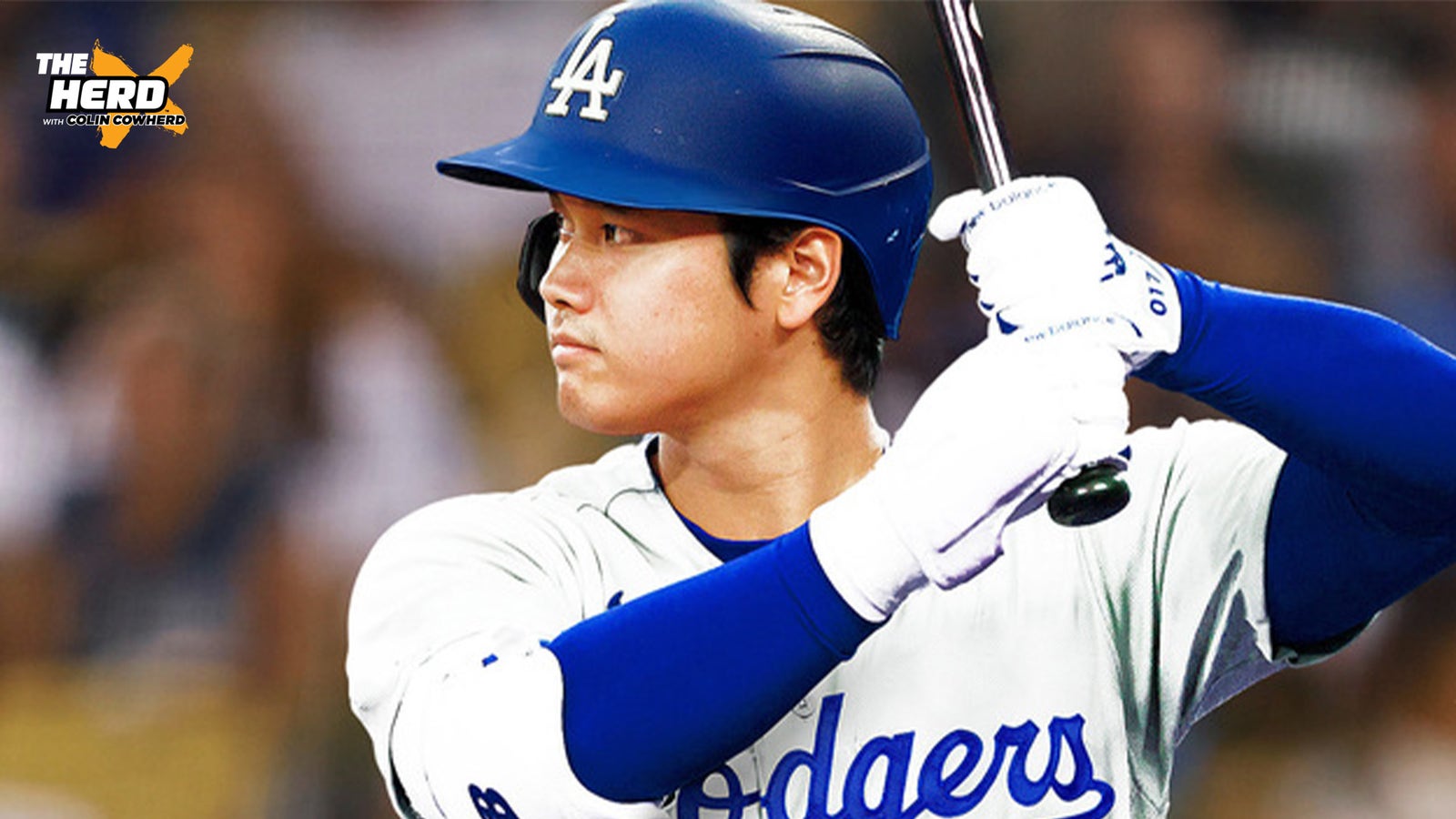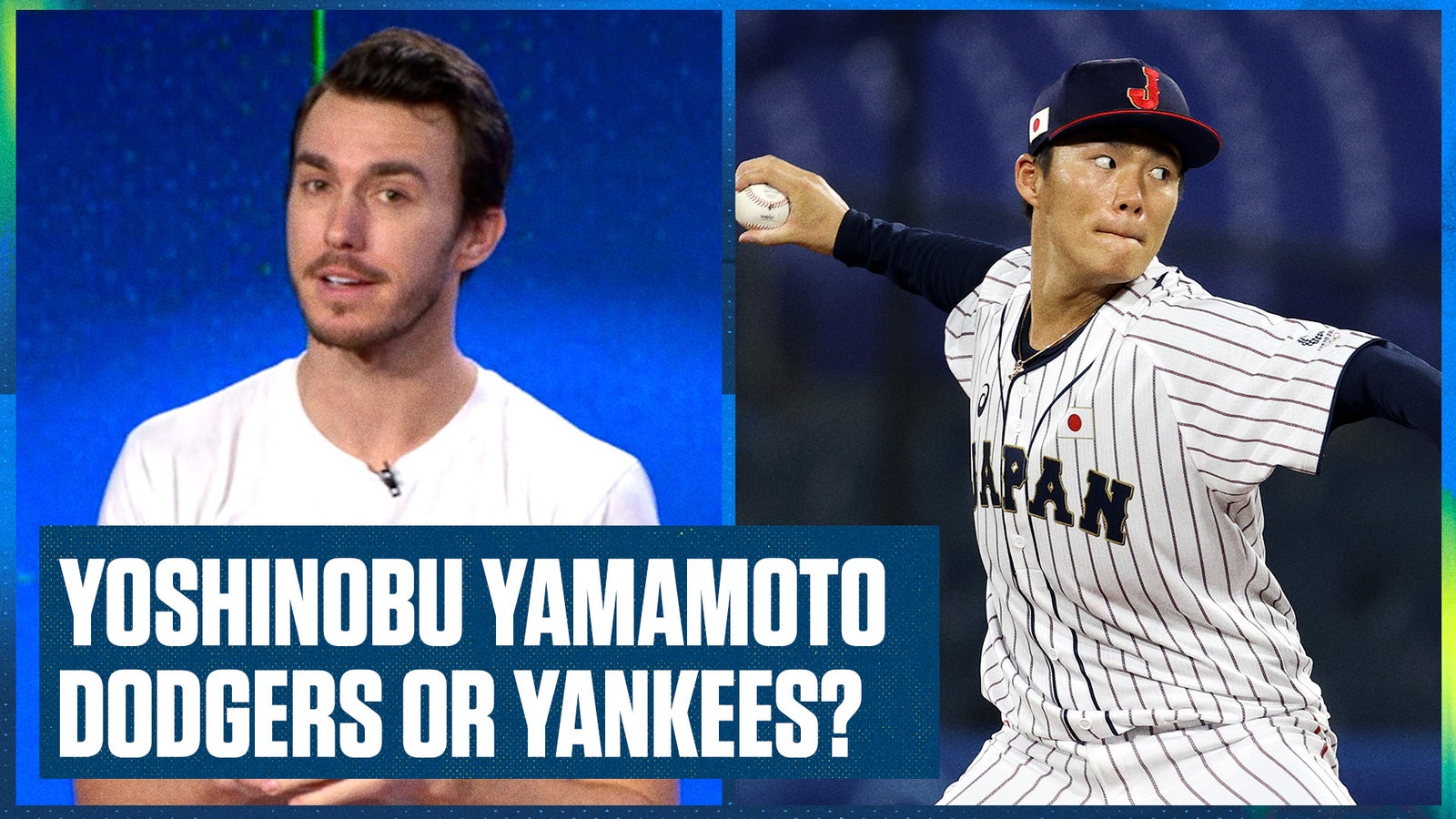
Shohei Ohtani or Juan Soto for 2024? 5 burning questions on MLB's offseason
Shohei Ohtani and Juan Soto are off the board. But nearly every other major free agent and trade candidate are still up for grabs in what remains a lukewarm hot stove season.
That might all change very soon, as teams seemingly turn their attention to the likes of Yoshinobu Yamamoto, Blake Snell, Cody Bellinger and a pack of premier pitchers reportedly being shopped.
FOX Sports MLB experts Jordan Shusterman, Deesha Thosar, Rowan Kavner and Jake Mintz are tackling those topics and more in our weekly roundtable.
1. Now that we know all the terms, which transaction do you like better: the Yankees' trade for Juan Soto or the Dodgers' signing of Shohei Ohtani? Which player do you expect to impact their respective team more in 2024?
Kavner: I loved the timing of the Yankees' deal, landing Soto before opposing teams knew whether they had missed out on the Ohtani sweepstakes, but the Dodgers just acquired the most gifted player in the sport for 10 years on an unprecedented deal with enough deferred money that they should be able to keep adding top talent.
As for 2024, Soto. This answer would be different if Ohtani were pitching next year, but he's joining an offense that was already one of the best in baseball. Soto, meanwhile, can revamp a Yankees group that ranked 24th in OPS last season. They desperately needed to add someone who could get on base consistently and they got it done.
Thosar: The Dodgers signing of Shohei Ohtani is so much more fascinating than anyone expected. The big reveal of his $680 million deferral was a shocking final layer to the madness of his free agency, and the structure of the contract is unlike anything the sport has ever seen. It also changes the complexion of how they can complete their offseason. Will they go full death star and continue signing the best players available? The Ohtani deferrals allow the Dodgers to remain a big player in the Yoshinobu Yamamoto sweepstakes.
For 2024 alone, Soto is the bigger difference-maker. That New York lineup is in desperate need of his left-handed bat, and I think he'll make the entire offense look and feel totally different from the otherwise stagnant production we saw while Aaron Judge was injured last year. If Ohtani was returning as a two-way player next season for the Dodgers, my answer would likely be adjusted. But since the Yankees are demonstrating urgency, and Soto is a one-year rental, I'm expecting the Bronx Bombers to be a big threat next year.
Mintz: Dodgers signing Ohtani. Both players are phenomenal, don't get me wrong, but the Dodgers will have Ohtani for a decade and Soto could leave New York in 10 months. The Yankees getting Soto is a big deal and gives them a phenomenal chance to bounce back from a lackluster 2023, but Ohtani is just a different thing altogether.
For 2024 specifically, I'll say Soto. This is in large part because Ohtani won't be pitching, but also because the Yankees lineup in 2023 was so flimsy. Soto gives Aaron Judge a skull-knocking partner in crime in the middle of the order. His on-base ability in front of Judge will lead to an avalanche of runs. The simple answer to this question is simple math: The Dodgers had two all-world hitters before they got Ohtani, the Yankees had just one.
Shusterman: Landing Ohtani is obviously the bigger achievement and more important long term, but I'll put it this way: Soto improves my outlook for the Yankees in 2024 more than Ohtani does my expectations for the Dodgers. That doesn't mean I think the Yankees will be better than the Dodgers outright; I just think Soto has made a bigger difference in my opinion of the team in the short term. Both teams still have more work to do this winter, though.
Colin Cowherd reacts to Shohei Ohtani deferring $680M of his deal
2. Where do you predict Yoshinobu Yamamoto to sign and for what terms?
Thosar: I still believe the Yamamoto sweepstakes will come down to the Mets and Yankees, with my prediction slightly adjusted for the Dodgers to heavily remain in the mix. It's tough to predict where he'll land without knowing if the biggest contract or winning now is more important to him. If it's the latter, then the Yankees or Dodgers are better destinations. But I think no one is going to top Steve Cohen's offer for Yamamoto, and if it's completely over the top from what other clubs are offering, it's even tougher to believe Yamamoto (or any player) would leave millions on the table. Initially, I wouldn't be surprised if Yamamoto received a deal worth $250 million around eight years. Now, Yamamoto approaching $300 million seems plausible.
Mintz: I think the number might get stupid, which means I think Mets owner Steve Cohen wins the bidding. Both New York teams are going to be in the mix, alongside the Dodgers and seemingly any club with payroll space that's anywhere near contention. But nobody has more cash to burn than the Mets, who see the 25-year-old Yamamoto as the perfect fit for their window of contention. Let's toss out nine years for $260 million.
Shusterman: I think Steve Cohen will find a way to win this tremendous bidding war between nearly all the biggest markets, and while I don't think the final number (without the posting fee) will surpass $300 million, I do think Yamamoto's unusual youth for a free agent will enable him to sign the longest contract we've ever seen given to a pitcher. I'll go 10 years, $280 million with the Mets.
Kavner: I was tempted to say the Mets here, assuming Steve Cohen will pay whatever is necessary to secure the most desirable free agent left on the market — before the details of Ohtani's contract emerged. Now, adding a player of Yamamoto's caliber has suddenly become more feasible. So, why not: Dodgers for eight years and $272 million ($256 million deferred).
3. As a general manager, which deal would you choose: Jordan Montgomery for six years and $150 million, Blake Snell for seven years and $200 million, or Yoshinobu Yamamoto for eight years and $250 million?
Mintz: It totally depends on the complexion of my pitching rotation and where I'm at in my competitive cycle. For instance, if I'm running the Dodgers, and my rotation is Ryan Yarbrough and a mountain of right-handers, I'm opting for Snell or Montgomery to add a southpaw to the mix. If I'm a team with a substandard defense like Boston, then Snell stands out because he misses more bats. If I'm a team like the Mets who is maybe a year away from seriously contending, then I'm opting for Yamamoto because he's only 25.
Shusterman: I think I still lean Yamamoto here considering such a deal would take him only through his age-32 season (which Montgomery and Snell will be pitching in just the second years of their next deals), but it probably depends how badly my hypothetical team needs a frontline arm vs. someone I can depend on to deliver a high volume of quality innings. $25M AAV for Montgomery could prove plenty reasonable if he remains as durable as he's been, even without factoring in his newfound big game resume. I like Snell more than most but seven years would be mildly terrifying for his profile.
Kavner: Yamamoto. Snell is 31. Montgomery will be 31 in a couple of weeks. Yamamoto won't be 31 until the 2029 season. Sure, it might be a bit disconcerting giving $250 million to someone who hasn't thrown a major-league pitch before, but his track record would suggest he can handle the move, and his next team will be getting him in his prime. He offers long-term upside unlike anyone else on the market. The pitching factory coming out of Japan is just getting started.
Thosar: I'm going Yamamoto for eight years and $250 million. At 25 years old, he's significantly younger than Montgomery and Snell. He's capable, if not expected, of being the ace of a rotation throughout his prime. Sure, he might need some time adjusting to pitching in the big leagues, plus the added culture shock of living in the United States could be impactful on the field. But Yamamoto's upside is so much greater than Montgomery or Snell. He's one of the best pitchers in the world.
Dodgers or Yankees: Who will land Yoshinobu Yamamoto?
4. Factoring team control and the varying assets you'd have to surrender, which pitcher would you be most inclined to trade for: Tyler Glasnow, Dylan Cease, Shane Bieber or Corbin Burnes?
Shusterman: In order: Burnes, Cease, Glasnow, Bieber. I'm the highest on Cease, but the trade cost is going to be so much greater than for the rental pitchers (as it should be), and Burnes' durability and upside combined with a projected salary that is significantly lower than Glasnow's puts him at the top for me. I still like Bieber but question his upside relative to the other three guys.
Kavner: Glasnow. Spencer Strider was the only starter (min. 100 innings pitched) with a higher strikeout rate than him last season. Yes, there's an injury risk, but as a one-year rental, he's well worth it. If I'm a team with championship aspirations in 2024, he's the guy I'm targeting.
Thosar: Burnes. He's perennially in the Cy Young conversation, in addition to winning the award in 2021. Burnes' innings logged over the past three seasons combined (562.2) are attractive and a welcome workhorse type addition to a rotation. Even if he's only under team control for one more year, becoming a free agent in 2025, that's a trade that can change the outlook of the 2024 season for any team in need of a starting pitching spark. If the Brewers actually agree to trade Burnes, that's a severe hit on the farm system for any team attempting to acquire his services. But it's also a trade that makes too much sense for a win-now team.
Mintz: Again, it depends on what type of org I am. If I have an elite pitching development group, then I'm going with Cease. He is the only one with two years left on his deal, but he needs a bit of work to rediscover that phenomenal 2022. Otherwise, I'd lean Burnes even though he's taken small steps back each year since his 2021 Cy Young campaign. He still hoovers up a ton of innings and is definitely worthy of a Game 1 playoff start on a good team. Bieber is too, but I'm a bit more worried about his durability.
5. Who would you rather sign for six years, $160 million: Cody Bellinger or Matt Chapman?
Thosar: For six years, I'd sign Bellinger. He's a couple of years younger than Chapman, so that contract would have a better chance of working out down the stretch. And $160 million makes sense for Bellinger, though I suspect he'll actually sign for more. Bellinger's future productiveness remains unknown after his final two seasons with the Dodgers cast so much doubt over his future. But I think Bellinger did enough last year with the Cubs to prove to interested clubs that his left-handed bat is still an MVP-caliber addition to any lineup.
Mintz: Bellinger. I'd expect the bidding on him to go beyond that considering he doesn't turn 29 until July. Chapman, by comparison, will be 31 in April. Bellinger scares the pants out of me — his 2023 was so bizarre that I'm not sure what to make of him moving forward — but his floor as a good defensive CF who makes a lot of contact (at least he did in '23) is pretty high.
Kavner: I guess I'd reluctantly favor Bellinger for the upside, and I think some team will end up giving him more than this, but both of these deals would terrify me. I have no idea what to make of Bellinger's 2023 season. He completely changed his offensive profile favoring contact over power in a bounce-back campaign that seems difficult to replicate when looking at the underlying numbers. You'd feel a whole lot better if he had hit the ball harder last year. Still, he's two years younger and offers greater reward.
Shusterman: Bellinger, I think, but whew, that's tough. Both come with massive questions on offense, so in some respects it comes down to how much you believe in Bellinger as a viable-to-good center fielder compared to Chapman's long-term value as a defender at third base. For just a six-year deal versus something like seven or eight, I think Bellinger being two-plus years younger helps me lean in his direction here, and I think I'd rather bet on the significant changes he made at the plate being fairly sustainable than riding the roller-coaster that has been Chapman's fluctuation from a nearly month-to-month basis. It's close, though!!
This story was compiled by: Jordan Shusterman and Jake Mintz (@CespedesBBQ), Deesha Thosar (@DeeshaThosar) and Rowan Kavner (@RowanKavner).












